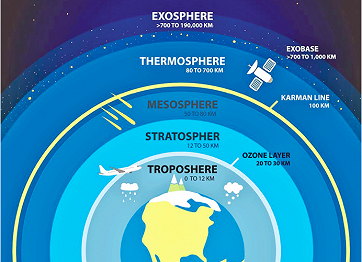- Home
- Prelims
- Mains
- Current Affairs
- Study Materials
- Test Series
 EDITORIALS & ARTICLES
EDITORIALS & ARTICLES
World Ozone Day 2021: Why is it observed on 16 September? What is the Montreal Protocol?
16th September 2021 is observed as International Day for the Preservation of the Ozone Layer or World Ozone Day.
History of the Day

- In order to curb the existence of all substances that add to the ozone depletion, Montreal Protocol was adopted in 16 September, 1987, where countries from across the globe decided to curb substances such as: Aerosols, Chlorofluorocarbon and Halons
- In 1994, the UN General Assembly proclaimed this day as the World Ozone Day.
- The Day is celebrated every year to spread awareness among people about the depletion of Ozone Layer and the measures taken to preserve it.
- Ministry of Climate Change has been celebrating the World Ozone Day since 1995 at the National and State levels.

- Ozone layer, is a region of the upper atmosphere above Earth’s surface, containing relatively high concentrations of ozone molecules (O3).
- 90 percent of the atmosphere’s ozone occurs in the stratosphere, region.
- The ozone layer effectively blocks almost all solar radiation of wavelengths from reaching Earth’s surface, including ultraviolet (UV) and other forms of radiation that could harm most of the living things.
- The Kigali Amendment to the Montreal Protocol was finalized in 2016.
- Aim: Parties to the Montreal Protocol will phase down production and consumption of Hydrofluorocarbons, or HFCs.
- Government of India has decided to ratify the Kigali Amendment to the Montreal Protocol.
- Focus will be on developing a national strategy for phase down of Hydrofluorocarbons.
- The Ministry of Climate Change has developed India Cooling Action Plan (ICAP).
- It is aimed to look for synergies in actions having the potential to provide socio-economic and environmental benefits, to reduce refrigerant use, climate change mitigation and Sustainable Development Goals.
- The ICAP recommends synergies with government programmes and schemes like- housing for all, the Smart Cities Mission, Doubling Farmers Income and Skill India Mission, to maximize socio-economic co-benefits.
- India has phased out Chlorofluorocarbons, Carbon tetrachloride, Halons, Methyl Bromide and Methyl Chloroform for controlled uses in line with the Montreal Protocol.
- (HPMP) Stage-I has been successfully implemented from 2012 to 2016.
- (HPMP) Stage-II is under implementation from 2017 and will be completed by 2023.
- (HPMP) Stage-III will be commenced soon which will phase out the use of HCFC-22, a refrigerant used in Refrigeration and Air-conditioning manufacturing.









 Latest News
Latest News General Studies
General Studies